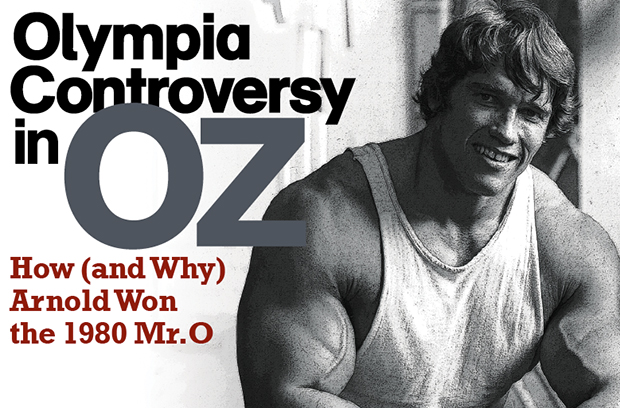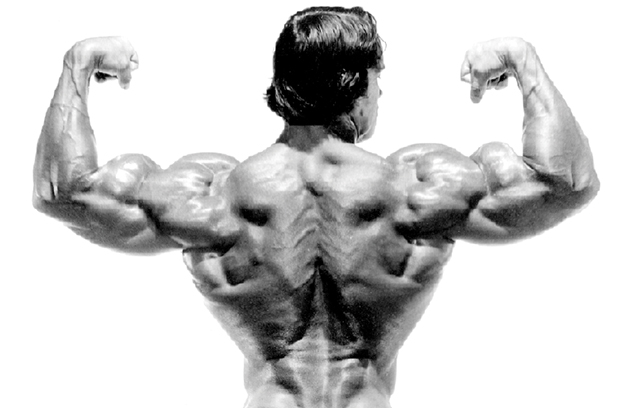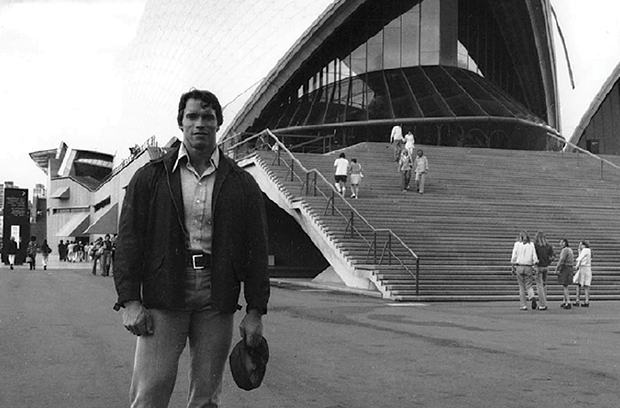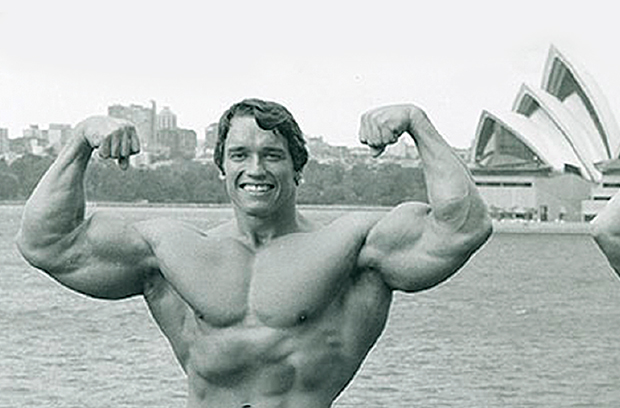OLYMPIA CONTROVERSY IN OZ

How (and Why) Arnold Won the 1980 Mr.Olympia
Every sport has its scandals. Take the “Black Sox” Scandal, when eight members of the Chicago White Sox were banned from baseball for throwing the 1919 World Series against the Cincinnati Reds. Or when Tonya Harding’s ex-husband and bodyguard hired a hit man (literally) to club Nancy Kerrigan’s knee before the 1994 U.S. Figure Skating Championships. And of course, most recently, we had “Deflategate” in 2015, involving the New England Patriots allegedly tampering with footballs used in the American Football Conference Championship Game against the Indianapolis Colts. The NFL announced that it would suspend Patriots quarterback Tom Brady, and well, the rest is history. As weightlifters, we probably sat back in our comfortable armchairs, drinking BCAAs, listening to these tribulations of other sports and laughing at how they could let something like this happen to their little niche. Unfortunately, as the saying goes, “People who live in glass houses shouldn’t throw stones.”
Bodybuilders live in very glass houses. Without airing all our dirty laundry in one article, let’s just say that professional bodybuilding isn’t without some aspersions and a little scandal. But it wouldn’t be as exciting if it were squeaky clean, now would it? Let’s talk about one particular controversy that affected the biggest competition of the entire season, the Mr. Olympia, back in 1980. It also affected the careers of several athletes who competed that day, but we’ll get to that later. To understand the 1980 event, we have to go back in time to the “Golden Era” of bodybuilding, the 1970s. That decade was known as the Golden Era because we saw Arnold Schwarzenegger’s six-year winning streak at the Mr. Olympia showdown (1970–1975), a win in 1976 by the “Sardinian Strongman” (and Arnie’s best friend) Franco Columbu, followed by a three-peat by “The Chemist” Frank Zane, who ushered in a totally new and completely different physique, which earned him three Olympia titles in a row.

Not only did the 1970s produce some of the best bodybuilders in the world to date, but it was also the time period in which the mainstream media caught wind of our little niche and decided to exploit it (in a good way!). William Gaines published Pumping Iron in 1974, George Butler and Jerome Gary made the film version the next year, ABC’s Wide World of Sports televised the Mr. Olympia and the Mr. Universe in 1977 for the first time, and then there was Arnold promoting his Education of a Bodybuilder book in 1977. On top of all that, as you’ll remember from Pumping Iron, Arnold announced his retirement after his 1975 Olympia win. So needless to say, it was an exciting decade for the bodybuilding world, and to many competitors, I’m sure it felt like things were starting to take off and that they were about to catch their big break in the sport.
Back to Arnold for a moment, though; after ’75, everyone thought this would be the last time they saw the Austrian Oak on a competitive stage, as he wanted to focus on building his brand through acting. And that he did, successfully! He went on to become a film and fitness celebrity in his own right. He was a regular on television talk shows, he wrote three best-selling books, and went on to star in five films in addition to one television movie (The Jayne Mansfield Story) between 1975 and 1980. As “side gigs,” he decided to do some real estate investing and co-promote the Mr. Olympia contest with Jim Lorimer. Together they helped elevate the competition to another level by making it a sold-out event and increasing the prize money substantially each year.
Why am I telling you all the things Arnold was doing in his five-year absence from the stage? I’ll come back to that.
After Zane’s three-year reign, the top contenders going into the 1980 Olympia were Zane (the incumbent who was poised to win his fourth Mr. O title), Mike Mentzer (1979’s runner-up, but also an incredible mass monster with unheard-of density and conditioning), and Chris Dickerson (a relative newcomer to the professional circuit who demonstrated a lot of potential and an incredible overall package). This Olympia in and of itself was unique for a couple of reasons: First, it was being promoted by Paul Graham at the Sydney Opera House in Sydney, Australia, whereas the last four had been held under the watchful eye of Jim Lorimer in Columbus, Ohio. And second, because the IFBB had decided that this new decade would bring back their old way of doing things, there would no longer be a lightweight (under 200 pounds) and heavyweight (over 200 pounds) Mr. Olympia; rather, they would go back to the 1965–1973 format where there would just be one division. This was to make things more competitive between the gentlemen, but also to eliminate the confusion of having two Olympia winners per year.

Everything sounds relatively normal up to this point, right? Well, leave it to Arnold to shake things up. Arnold had been cast to play the role of Conan the Barbarian in the 1982 movie, and as such, he needed to train specifically for it. But was that all he was training for? According to Total Rebuild, the documentary about the 1980 Mr. Olympia, when asked about his decision to enter the Olympia competition that year, Arnold said “We’re going to start shooting the first few scenes (of Conan) in October, and so I really wanted to be muscular because the idea was that Conan was a very muscular, heroic looking guy, and that I should be in top shape … the closer I came to this competition more people started speculating on the idea that I would be competing and the more I started thinking about the possibility. And so around three weeks or two weeks ago I decided, well, I think it would be a kind of an interesting challenge to do something in eight weeks that most of the guys do, preparing a year or two years in advance.”
If this sounds like a jerk thing to do, that’s probably because it is. Arnold showed up unannounced at the athletes’ meeting on the Friday night before the show. Everyone thought it was a joke or publicity stunt, until he got vocal about his opinion of amalgamating the two weight class divisions. He got in verbal altercations with both Boyer Coe and Mike Mentzer that night, and got the reaction he intended; competitors were riled up and agitated—just as Arnold likes them. The guys realized it wasn’t a joke.

In terms of the competition day itself, there were just as many surprises. Arnold showed up holding a lot of water (probably due to not leaving himself enough time between the flight to Australia and the competition), smaller than normal (because the movie was his priority, so he had to bring a more streamlined/mainstream look), and a little underdeveloped in the abdominal and quad department. Throughout the competition, he made sure to always play to the crowd, smile incessantly, and hit his mandatory poses differently than everyone else in order to hide his weaknesses and play to his strengths, reminding the judges why he was a six-time Mr. Olympia.
Whatever he did worked, and Arnold took home the crown yet again. Chris Dickerson, arguably the most developed onstage, placed second, and was heard yelling, “I can’t believe it” while walking away. Frank Zane placed third and reportedly threw his trophy at a wall. Boyer Coe and Mike Mentzer ended up tying for fourth in terms of points, but Mentzer was awarded the fifth place trophy onstage; he later claimed he was the victim of a conspiracy and politics. Needless to say, none of the guys were happy with the fact that Arnold had won the $25,000 prize purse and the distinction of being the 1980 Mr. Olympia. That day, Arnold retired with his seventh and final Olympia title.
In the wake of the controversy, competitors—including the top five finishers—told the press they were going to boycott the 1981 contest. On a more emotional level, this show had both a profound impact both personally and professionally on Mike Mentzer, and it was the last pro show in which he competed (he retired at only 29 years old). Many claim that he let the outcome of this particular show affect the rest of his life and his happiness thereafter. In addition, although CBS attended and filmed the 1980 contest, it actually decided not to air it as planned. Not only that, but it was also the last time the Mr. Olympia contest was filmed by an American broadcast television network.
As you can see, even though our sport has been sprinkled with controversy since its inception (if you’re unfamiliar with the rugged and sordid history between the Weiders/IFBB and Bob Hoffman/AAU, you should look it up), the one contest that stands out in everyone’s mind in terms of events that will always be remembered is the 1980 Mr. Olympia.

